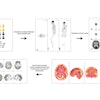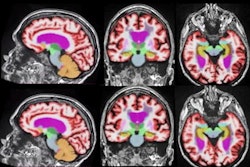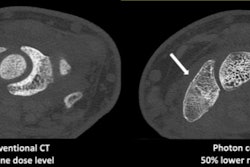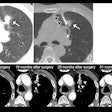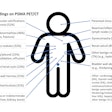Dear AuntMinnie Member,
PET has carved out a role for detecting early signs of brain changes that could be a harbinger of Alzheimer's disease. But what if you combined the modality with blood tests?
Researchers from Sweden did just that, finding that PET scans and blood tests for the presence of a type of tau in the brain worked well in predicting which individuals were most likely to have tau accumulation.
In another story in our Molecular Imaging Community, researchers from Austria and Iran used PET/CT to predict which patients with metastatic melanoma should receive immunotherapy drugs.
Can AI reduce burnout?
Burnout of medical personnel has been one of the most challenging topics in healthcare. Radiology isn't immune, either, as radiologists face a rising volume of imaging exams.
Could artificial intelligence (AI) offer a solution? Jan Makela, president and CEO of GE Healthcare Imaging, thinks so, and he offers a perspective on why.
POCUS for swallowed coins
The holiday season is one of the most wonderful times of the year, but it can also be challenging for many parents with small children who may want to interact too closely with their new toys -- such as by putting them in their mouths.
Fortunately, medical imaging has a solution for that, too. In our Ultrasound Community, we present a case report from the University of Texas on how emergency physicians used point-of-care ultrasound (POCUS) to detect a coin that a child had ingested.
Also in the community, check out our coverage of a study by Australian researchers who analyzed the effectiveness of routine ultrasound scans of patients admitted for cardiopulmonary issues. They wanted to see if the scans reduced hospital length of stay. Read our coverage to find out how well it worked.
Get these stories and more in our Ultrasound Community.
As 2021 comes to a close, we'd like to thank all of our members, sponsors, and contributors for their support. As with 2020, this was another challenging year, but the arrival of vaccines for COVID-19 -- and the success of RSNA 2021 -- indicates that our specialty and the world at large could be on the road back to normalcy, despite the temporary setback caused by the omicron variant.
Next week, we'll be highlighting the top 10 stories of the year, so be sure to stay tuned to find out which articles topped the charts.
Happy holidays, and see you in 2022!



